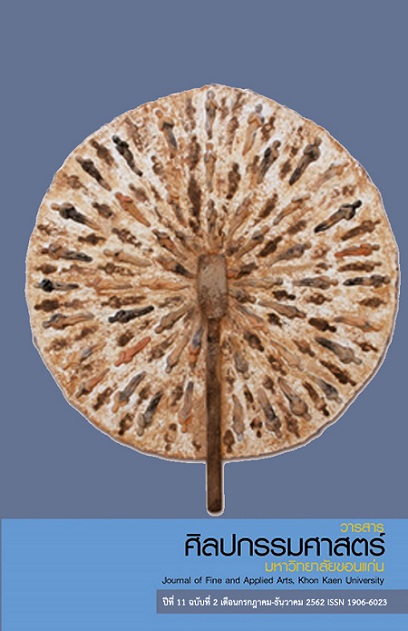The Reproduction of Luang Prabang Sculpture in the World Cultural Heritage
Main Article Content
Abstract
This article needs to reflect the process about commodification of changing the cultural identity as a product and the reproduction of Luang Prabang sculpture as a World Heritage Site. This article is the one part of the research on the Luang Prabang art’s identity and reproduction of world cultural heritage and this is a qualitative research. The researcher introduced the concept of cultural reproduction with Marxist concept of popular culture, the concept of power relations in the view of Antonio Gramsci is a framework for analyzing phenomena occurring with the sculptures of Luang Prabang. That makes sense about the process of altering the identity of the sculpture in Luang Prabang includes the process of being marketed to the tourism industry, the market system and capitalism that comes with being a World Heritage City. The production process is in line with the market conditions of the tourism industry and utilizing the cultural capital according to the concept of political economy, which affects the domination of thought and cultural production of Luang Prabang.
Article Details
Content and information in articles published in the Journal of Fine and Applied Arts of Khon Kaen University is regarded as the opinion and sole responsibility of the author(s) directly; therefore, editors are not obliged to agree to or share any responsibility with regard to the content and information that appears within these articles.
All articles, information, content, image, etc. that have been published in the Journal of Fine and Applied Arts of Khon Kaen University is the copyright of the Journal of Fine and Appllied Arts of Khon Kaen University. Any person or organization who wishes to distribute all or parts of the articles for further dissemination or other usage must first receive permission from the Journal of Fine and Applied Arts of Khon Kaen University before proceeding to do so.
References
Boccardi, G., Logan, W. (2007). Reactive monitoring mission to the town of Luang Prabang world Heritage Property Lao PDR, 22-28 November 2007. Paris: World Heritage Centre and ICOMOS.
Bourdieu, Pierre. (2001). The Forms of Capital, Oxford University Press , Oxford.
Gramsci, Antonio. (1971). Selections form the Prison Notebooks. London, Lawrence and Wishsrt.
John Storey. (1994). Cultural Theory and Popular Culture : A Reader. Hemel Hempstead, Harvester Wheatsheaf.
John Storey. (1998). An Introdcution of Cultural Theory & Popular Culture. University of Georgia Press, Athens.
Pierre Bourdieu. (1984). Distinction A Social Critique of the Judgement of Taste. Translated by Richard Nice. Havard University Press, Cambridge.
Raymond Williams. (1963). Culture and Society. Penguin, Harmondsworth.
Raymond Williams. (1965). The Long Revolution. Penguin, Harmondsworth.
Theodore Adorno and Max Horkheimer. (1972). Dialectic of Enlightenment. Herder and Herder, New York.


